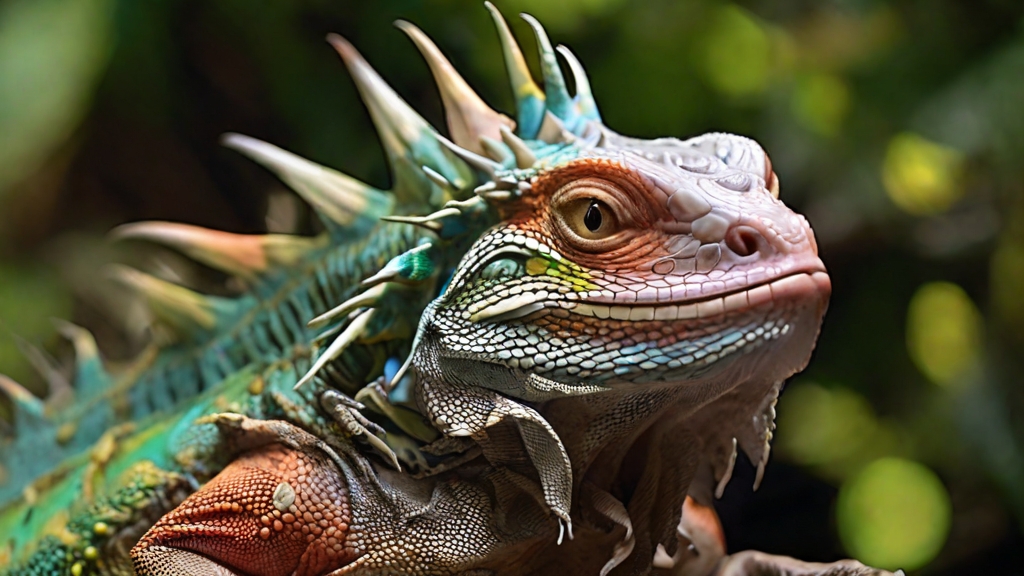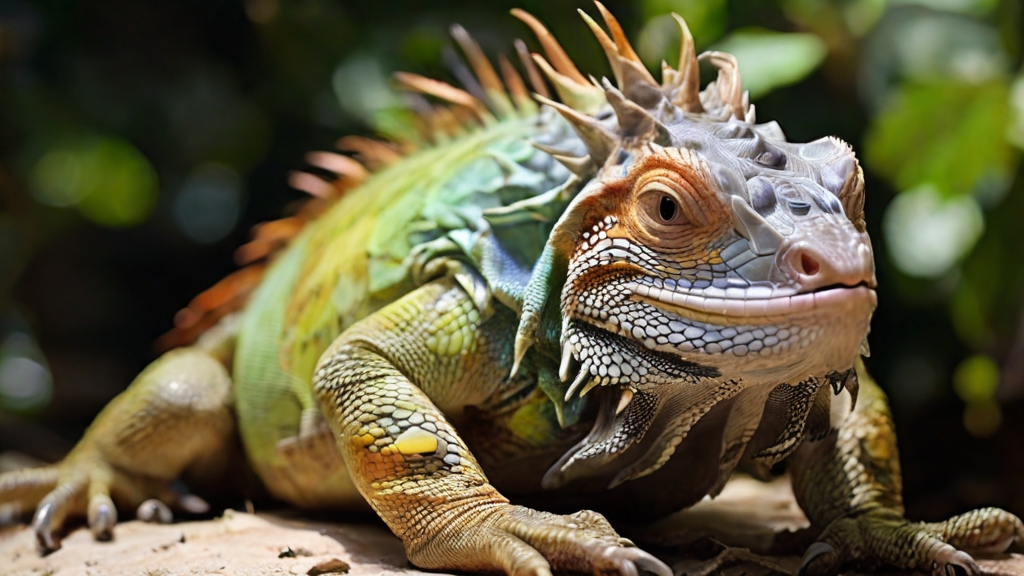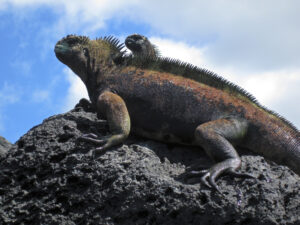When it comes to iguanas, one of the most common questions that arises is whether they are herbivores or not. Well, the answer is, yes, iguanas are indeed herbivores. These fascinating reptiles primarily feed on plant matter, including fruits, leaves, flowers, and even some vegetables.
It is essential to understand their dietary habits to ensure their overall health and well-being. By exploring the natural diet of iguanas, we can gain insights into their nutritional needs and how to meet them in both wild and captive settings.
Understanding Iguanas’ Digestive System
To understand why iguanas are herbivores, it is crucial to examine their digestive system. Iguanas possess a unique digestive tract that is specifically adapted to break down and process plant material efficiently. Unlike carnivores or omnivores, iguanas have long intestines and a large cecum, which aids in the fermentation and digestion of fibrous plant matter.
Their digestive system works best when they consume a high-fiber diet, making them well-suited for a herbivorous lifestyle.
Anatomy of an Herbivore: Iguanas’ Teeth and Jaw Structure
Another aspect that supports the notion of iguanas being herbivores is their dental and jaw structure. Herbivorous reptiles, including iguanas, possess sharp, serrated teeth that are ideal for slicing through vegetation.
These teeth are not designed for tearing flesh or crushing bones, further confirming their herbivorous nature. In addition, iguanas have a unique jaw joint that allows them to move their upper and lower jaws independently, aiding in the efficient consumption of plant material.
Iguanas in the Wild: What Do They Eat?
In their natural habitat, iguanas have a varied diet consisting of leaves, flowers, fruits, and even tree bark. They are known to consume a wide range of plant species, depending on their availability. For example, in the wild, green iguanas (Iguana iguana) are commonly found feeding on the leaves of trees such as the hibiscus, mango, and guava. This diverse diet ensures that they receive the necessary nutrients to thrive in their environment.
The Vegetarian Diet: What Should Be Included in an Iguana’s Menu?
When it comes to feeding iguanas in captivity, it is essential to replicate their natural diet as closely as possible. A balanced vegetarian diet for iguanas should include a variety of leafy greens, such as collard greens, mustard greens, and dandelion greens.
Additionally, fruits like papaya, strawberries, and mangoes can be offered as occasional treats. It is crucial to ensure that the diet is high in calcium and low in phosphorus, as an imbalance in these minerals can lead to metabolic bone disease.
Feeding Iguanas in Captivity: Challenges and Considerations
Feeding iguanas in captivity can present some challenges. It is important to provide them with a wide range of fresh, high-quality plant matter to ensure they receive all the necessary nutrients. Iguanas have specific dietary requirements, and a lack of variety or improper nutrition can lead to health issues.
Additionally, it is crucial to avoid overfeeding, as obesity is a common problem in captive iguanas. Regular monitoring of their weight and adjustment of portion sizes is necessary to maintain their ideal body condition.
Common Mistakes: Foods to Avoid Feeding Iguanas
While it is essential to provide a variety of plant-based foods, there are certain items that should be avoided when feeding iguanas. Foods high in oxalates, such as spinach and beet greens, should be limited as they can interfere with calcium absorption.
Similarly, foods high in goitrogens, such as kale and cabbage, can disrupt thyroid function and should be fed sparingly. Also, it is crucial to avoid feeding iguanas any animal-based proteins, as they are not equipped to digest such food and it can lead to serious health problems.
Supplementing Iguana Diets: Essential Vitamins and Minerals
To ensure that iguanas receive all the necessary vitamins and minerals, it is essential to provide appropriate supplements. Calcium and vitamin D3 are particularly important for maintaining proper bone health.
These supplements can be added to their food or provided through natural sunlight exposure. It is recommended to consult with a reptile veterinarian to determine the appropriate dosage and frequency of supplementation based on the individual iguana’s needs.
Balancing Nutritional Needs: Achieving Optimal Health for Iguanas
Ensuring a proper balance of nutrients is crucial to achieving optimal health for iguanas. It is important to offer a variety of foods that provide a range of vitamins, minerals, and antioxidants. By providing a well-rounded diet, iguanas can maintain a healthy immune system, vibrant skin, and strong bones.
Regularly monitoring their weight, appearance, and behavior can help identify any nutritional deficiencies or imbalances and allow for prompt adjustments to their diet.
Iguanas and Water Consumption: Hydration for Herbivorous Reptiles
While iguanas primarily obtain moisture from the plant matter they consume, it is still essential to provide them with access to fresh water.
Clean water should be available at all times in a shallow dish that is easy for iguanas to access. Hydration is crucial for proper digestion and overall health. Additionally, misting iguanas with water can help maintain appropriate humidity levels, especially in captive environments with lower humidity.
Conclusion: Maintaining a Healthy Herbivorous Diet for Iguanas
In conclusion, iguanas are indeed herbivores, with a natural diet consisting of plant matter. Their digestive system and dental structure are adapted for efficiently processing and consuming vegetation. Whether in the wild or in captivity, it is crucial to provide iguanas with a balanced and varied diet that meets their nutritional needs.
Avoiding common mistakes and supplementing with essential vitamins and minerals are essential for maintaining their optimal health. By understanding their dietary habits and providing appropriate care, we can ensure that these fascinating reptiles thrive in our care.




